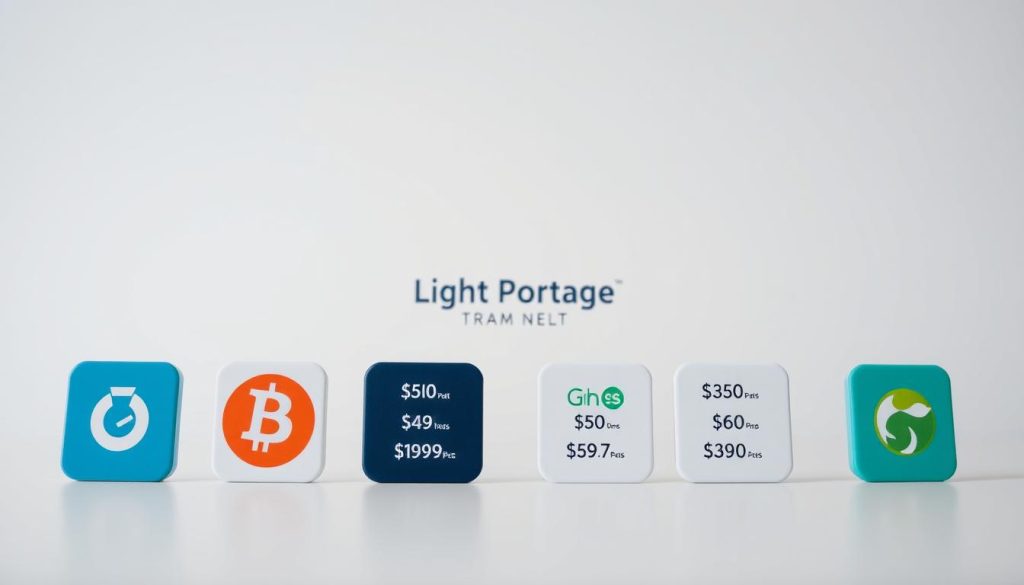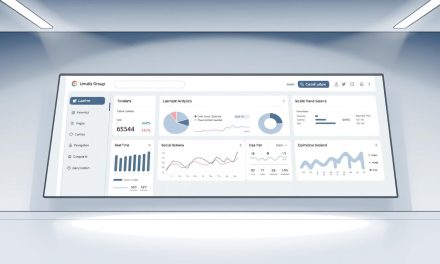Remember that moment when you finally hit « send » on a completed project? The relief fades quickly when doubts creep in: Will the client pay on time? Is my financial data safe? For independent professionals, these worries can overshadow the joy of meaningful work.
Modern digital platforms now offer solutions that prioritize both speed and security. Over 70% of self-employed workers globally report faster fund transfers compared to traditional banking, according to recent financial tech studies. This shift isn’t just convenient—it’s reshaping how talent and businesses collaborate across borders.
Secure transaction tools act as bridges between effort and reward. They minimize delays, reduce administrative tasks, and protect sensitive information. Whether you’re invoicing a local client or partnering with an international team, the right system ensures you focus on what matters: growing your career.
Table of Contents
Key Takeaways
- Digital payment solutions reduce transaction delays by up to 80% compared to checks or wire transfers
- Encryption and two-factor authentication are critical for protecting sensitive financial data
- Platforms with multi-currency support simplify global collaborations
- Automated invoicing features save 5+ hours monthly on administrative tasks
- Real-time payment tracking improves transparency between professionals and clients
Introduction to Secure Freelance Payment Methods
Digital transactions now form the backbone of professional independence. With 43% of remote workers experiencing payment delays at least once, secure systems aren’t optional—they’re career safeguards. Modern tools bridge trust gaps while accelerating global collaborations.
Guarding Your Earnings
Unauthorized access or disputed transfers can derail projects. Reliable platforms use bank-grade encryption and activity alerts to shield accounts. For example, systems with automatic invoice tracking reduce late payments by 65%, as per 2024 fintech reports.
Borderless Business Needs
Clients today span continents, demanding flexible solutions. Platforms supporting 10+ currencies and instant conversions help professionals receive payments without hidden fees. This adaptability fuels partnerships from Paris to Singapore.
| Feature | Local Systems | Global Platforms |
|---|---|---|
| Transaction Speed | 1-3 Days | Instant |
| Currency Options | Single | Multi |
| Dispute Resolution | Manual | Automated |
| Security Layers | Basic | Advanced |
Evolving tools now prioritize both speed and compliance. Real-time verification checks and localized tax settings meet France’s strict financial regulations. This balance lets independent workers focus on growth, not paperwork.
Understanding the Freelance Payment Landscape
Global collaboration now drives modern work dynamics, yet transferring earnings across borders remains a persistent hurdle. Over 60% of cross-border professionals report using three or more platforms to manage transactions, according to 2024 financial ecosystem studies. This shift reflects evolving demands for speed and flexibility in global partnerships.
Market Trends and Emerging Technologies
Real-time settlement systems now process 78% of digital transactions, slashing wait times from days to minutes. Blockchain-powered networks reduce currency conversion fees by up to 40% compared to traditional banking. These advancements enable creatives in Marseille to invoice Tokyo clients without intermediary delays.
Leading business tools combine multi-currency wallets with localized compliance features. For instance, platforms like Wise automatically adjust invoices to meet EU tax regulations while supporting 50+ currencies. This dual capability simplifies collaborations across 170+ countries.
| Factor | Traditional Banks | Digital Solutions |
|---|---|---|
| Transfer Speed | 3-5 Days | Instant-24h |
| Transaction Fees | 8-15% | 0.5-3% |
| Currency Support | Limited | 50+ |
| Compliance Tools | Manual | Auto-Adjust |
Emerging APIs let professionals embed payment gateways directly into project management tools. Architects in Lyon now receive funds through Upwork escrow before delivering blueprints, ensuring mutual protection. Such integrations reduce administrative tasks by 30 hours monthly, per recent workflow analyses.
Key Features to Look for in a Payment Platform
Selecting the right financial tools transforms how professionals safeguard and access their earnings. Modern systems blend robust security with operational flexibility, ensuring transactions remain both protected and efficient. Let’s explore critical elements that separate basic tools from career-enabling solutions.
Essential Security and Verification Measures
Bank-grade encryption forms the foundation of trustworthy platforms. Services like PayPal employ 256-bit SSL protocols, creating digital vaults for sensitive data. Two-factor authentication adds another layer, requiring biometric or code-based verification for account access.
Escrow systems, such as Upwork’s milestone protection, hold funds until work meets agreed standards. This method balances client and professional interests, reducing disputes by 58% according to platform analytics. Real-time alerts for login attempts or transfers keep users informed about account activity.
Support for Multiple Currencies and Local Bank Integrations
Global professionals need systems that handle euros, dollars, and yen with equal ease. Platforms offering multi-currency wallets eliminate conversion headaches—Wise Business supports transactions in 50+ currencies while maintaining competitive exchange rates.
Direct bank account synchronization accelerates fund availability. For instance, linking a French IBAN allows instant euro transfers without intermediary delays. Regional compliance features automatically adjust invoices for VAT or local tax rules, saving hours on administrative tasks.
When evaluating options, prioritize platforms combining these security and flexibility features. The right choice becomes an invisible partner in your success—protecting earnings while expanding global opportunities.
Exploring freelance payment methods for Global and Local Payments
Navigating cross-border earnings requires tools that bridge financial ecosystems. Professionals balancing international clients and regional partnerships need systems adapting to both worlds. Over 67% of global workers now use hybrid approaches—combining local accounts with multi-currency platforms—to optimize transaction flows.
Comparing International Transfers and Local Bank Accounts
Traditional local bank methods excel for domestic transactions—direct deposits clear within hours, and fees stay minimal. However, handling multiple currencies often triggers conversion charges up to 5% per transfer. This eats into earnings when collaborating across borders.
Dedicated payment solutions like Wise Business solve this through virtual accounts supporting 50+ currencies. Users receive euros, dollars, or yen directly without intermediary banks. A 2024 fintech study showed such platforms reduce conversion costs by 70% compared to standard banking.
| Feature | Local Bank | International Platform |
|---|---|---|
| Transfer Speed | Same-Day | 1-2 Days |
| Currency Support | Single | 50+ |
| Conversion Fees | 3-5% | 0.4-1% |
| Account Setup | Physical Branch | Digital |
Geographic flexibility matters too. Platforms like Payoneer offer localized receiving accounts—a French professional can get a US-dedicated routing number for client payments. This bypasses international transfer fees entirely.
For recurring collaborations, hybrid models work best. Pair a local bank for euro transactions with a multi-currency payment solution for global projects. This strategy maintains cost efficiency while expanding market reach.
Evaluating International and Local Payment Options
What separates a profitable international project from a financial headache? The answer often lies in transaction costs and processing efficiency. Modern platforms and traditional systems offer distinct advantages, but their fee structures and operational timelines demand careful analysis.
Wise Business and Cross-Border Payment Strategies
Wise Business charges an average 0.5% conversion fee for 50+ currencies—significantly lower than traditional banks’ 3-5% rates. Their batch payment feature lets professionals process multiple transfers simultaneously, cutting per-transaction costs by 40% according to 2024 platform data. Real-time tracking ensures full visibility from invoice to fund receipt.
PayPal, Stripe, and Traditional Bank Transfers
PayPal’s cross-border fees range from 3.5% to 5%, while Stripe offers volume discounts for high-frequency users. Traditional banks remain viable for local transactions, with same-day euro transfers but limited currency support. Consider this comparison:
| Service | Conversion Fee | Transfer Speed | Account Options |
|---|---|---|---|
| Wise | 0.4-1% | 1-2 Days | Multi-Currency |
| PayPal | 3.5-5% | Instant | Single Wallet |
| Traditional Bank | 3-5% | 1-3 Days | Local Only |
Three strategies minimize costs:
- Use Wise’s multi-currency account for recurring international projects
- Negotiate custom rates with Stripe for high-volume work
- Pair local bank transfers with digital platforms to balance speed and fees
Understanding the process helps avoid surprises. Digital services typically provide instant quotes, while banks require manual rate checks. Always verify hidden charges like intermediary bank fees before confirming transfers.
Secure Payment Options for Freelancers in France

Navigating France’s financial ecosystem requires tools that align with both client expectations and regulatory rigor. French professionals face unique challenges—from strict data protection laws to euro-centric transaction norms. Over 82% of independent workers prioritize platforms offering SEPA compatibility, per 2024 Banque de France reports.
Understanding Regional Preferences and Compliance
French clients demand traceable transactions with detailed invoices. Platforms must provide VAT-compliant documentation and SEPA (Single Euro Payments Area) integration for euro transfers. Systems lacking invoice numbering or tax ID fields often face rejection from corporate partners.
| Feature | Traditional Banking | Modern Platforms |
|---|---|---|
| Invoice Tracking | Manual | Automated |
| SEPA Compliance | Partial | Full |
| Two-Factor Auth | Optional | Mandatory |
| GDPR Alignment | Basic | Advanced |
Local Regulations and Currency Considerations
France’s anti-fraud law requires preserving transaction records for six years. Platforms like Lydia Pro automatically archive invoices and payment confirmations. For euro-to-foreign-currency conversions, services must adhere to EU’s Financial Transaction Tax rules—a detail many global tools overlook.
Recommended solutions combine IBAN-based euro accounts with multi-currency support. For example, Revolut Business offers French IBANs while handling 28 currencies—critical for professionals serving EU and international clients. This dual capability ensures compliance without limiting market reach.
Prioritize platforms with built-in fraud detection and automatic tax reporting. These security features not only protect earnings but also streamline annual déclaration de revenus processes. The right tools turn regulatory hurdles into competitive advantages.
How Freelancer Platforms Simplify Payment Processing
The moment a client approves your deliverable should transition smoothly into receiving earnings—not sparking anxiety about fund transfers. Leading platforms now act as financial intermediaries, ensuring both parties honor agreements through structured systems.
Role of Escrow Services and Transaction Protection
Escrow systems hold money in secure third-party accounts until work meets predefined milestones. Upwork’s milestone tracker releases funds only after client approval, reducing payment disputes by 62% according to their 2024 transparency report. This solution creates accountability—clients can’t withhold payments arbitrarily, while professionals avoid scope creep.
Streamlining Payouts on Platforms Like Upwork and Fiverr
Upwork’s scheduled payouts allow automatic transfers to linked bank accounts every Wednesday, eliminating manual withdrawal requests. Fiverr’s « Clear Payments » system converts earnings into 25 currencies within 48 hours, ideal for global collaborations. Both platforms provide real-time dashboards showing:
- Pending approvals
- Conversion rates
- Transfer timelines
| Feature | Upwork | Fiverr |
|---|---|---|
| Escrow Protection | Per Milestone | Full Project |
| Payout Speed | 2-5 Days | Instant-48h |
| Currency Options | 100+ | 25+ |
| Dispute Resolution | 48h Response | 72h Response |
These solutions transform complex financial workflows into background processes. By handling currency conversions and compliance checks automatically, professionals regain 11+ hours monthly—time better spent refining their craft than managing money trails.
Integrations and Automation in Payment Solutions
Time spent reconciling spreadsheets could instead fuel your next breakthrough. Modern financial tools now connect project success directly to business health through smart integrations. Automated systems sync transaction data across platforms, turning chaotic records into actionable insights.
Syncing with Accounting and Invoicing Tools
Leading platforms like QuickBooks and Xero automatically import transaction details into expense categories. This eliminates manual data entry errors—a 2024 SaaS study showed integrations reduce bookkeeping mistakes by 73%. For recurring projects, systems generate invoices and reminders based on preset triggers.
Consider these popular options and their key features:
| Software | Sync Frequency | Tax Prep | Multi-Currency |
|---|---|---|---|
| QuickBooks | Real-Time | Auto-Calculations | Yes |
| Xero | Daily | VAT Templates | Yes |
| Sage | Hourly | Custom Reports | Limited |
A unified account dashboard lets you track euro payments from Marseille clients alongside dollar transactions from New York partners. Automated alerts notify you of overdue invoices, while reconciliation tools match bank deposits to project records.
This variety of connected services transforms financial management from a chore into a strategic asset. By centralizing data flows, professionals reclaim 15+ hours monthly—time better invested in skill development or client acquisition.
Considerations for Transaction Fees and Currency Conversion

Hidden fees can silently erode hard-earned profits—a reality every global professional must confront. A 2024 analysis revealed professionals lose 7-12% of cross-border earnings to transaction costs and unfavorable exchange rates. Choosing platforms with transparent pricing becomes critical for maintaining project profitability.
Decoding Platform Fee Structures
Services like Wise charge 0.4-1% for currency conversions, while PayPal applies 3.5-5% plus fixed fees. These differences compound significantly over time:
| Service | Conversion Fee | Transfer Fee |
|---|---|---|
| Wise Business | 0.5% | $2-7 |
| PayPal | 4% | 1.5% |
| SEPA Transfer | 0% | €0.35 |
Note how euro-denominated transactions within the EU avoid conversion charges entirely through SEPA—a key advantage for French professionals.
Smart Conversion Tactics
Three strategies preserve earnings during currency exchanges:
- Batch transfers: Group multiple payments to minimize per-transaction fees
- Rate alerts: Use apps like Revolut to execute conversions during favorable market spikes
- Dual accounts: Maintain separate euro and foreign currency wallets to avoid repeated conversions
“Timing conversions during mid-week market hours saves 1.2% on average,” states a recent fintech report. Combine this with multi-currency cards for seamless spending abroad.
Balance service quality with costs by negotiating fees for high-volume work. Many platforms offer custom rates when handling €10,000+ annually. Transparent discussions about financial terms build trust while protecting your bottom line.
Innovative Solutions: Stablecoins and Cryptocurrencies
Imagine receiving earnings before your client’s bank processes the transaction. Blockchain technology makes this possible, reshaping how professionals manage funds globally. Stablecoins like Tether (USDT) and USD Coin (USDC) now offer instant transfers with minimal volatility—critical for time-sensitive projects.
How Blockchain Enhances Transfer Efficiency
Traditional bank transfers take days to clear internationally. Blockchain networks settle transactions in minutes, 24/7. For example, sending USDC via Solana costs under $0.01 and completes in seconds. This speed benefits professionals needing immediate access to earnings for reinvestment or expenses.
Security also improves through decentralized ledgers. Each transaction encrypts across thousands of nodes, making tampering nearly impossible. “Blockchain reduces fraud risks by 89% compared to traditional systems,” notes a 2024 fintech security report.
| Factor | Traditional Bank | Crypto Systems |
|---|---|---|
| Transfer Speed | 1-5 Days | Instant-10 Minutes |
| Fees | $15-50 | $0.01-$2 |
| Availability | Business Hours | 24/7 |
| Currency Support | Limited | Global |
Smart contracts automate milestone-based payments, releasing funds upon project completion. Platforms like Request Network let freelancers set terms directly in code—no manual invoicing required.
While volatility concerns persist, stablecoins pegged to fiat currencies mitigate risks. Professionals can convert crypto to euros through BitPay or Nexo, bridging digital and traditional finance. This hybrid approach maintains flexibility while protecting earnings from market swings.
Tips for Managing and Automating Freelancer Payments
Your creative energy fuels projects, but inconsistent cash flow can dim that spark. Structured systems turn financial uncertainty into predictable growth. Over 68% of professionals report improved client relationships after implementing clear payment protocols, per 2024 workflow studies.
Setting Clear Payment Terms with Clients
Define expectations before starting work. Include these elements in contracts:
- Deposit requirements (30-50% upfront)
- Accepted currencies and conversion rates
- Late fee policies (2-5% monthly)
Platforms like Bonsai offer template libraries with legally vetted clauses. “Ambiguity causes 74% of payment disputes,” notes financial consultant Léa Martin. Share terms via email and project management tools for dual confirmation.
Utilizing Automation Tools for Consistent Cash Flow
Schedule invoices to match project milestones using tools like QuickBooks or Zoho. Auto-reminders notify clients 3 days before due dates, reducing late payments by 41% according to SaaS analytics. Integration examples:
| Tool | Key Feature | Integration |
|---|---|---|
| QuickBooks | Recurring Invoices | Wise, PayPal |
| HoneyBook | Contract Signing | Stripe |
| Zapier | Payment Alerts | Slack, Gmail |
Set up escrow-to-bank transfers for hands-off earnings collection. Professionals using automation save 9 hours monthly—time better spent acquiring new clients or refining skills.
« Systems protect more reliably than willpower. Automate financial workflows to focus on what you do best. »
Conclusion
In an era where trust fuels global partnerships, secure financial tools become career lifelines. Modern platforms transform transactions from administrative burdens into strategic advantages—slashing processing times while shielding sensitive data.
Key features like multi-currency wallets and automated invoicing save hours monthly. Professionals gain freedom to focus on growth rather than compliance paperwork. Escrow systems and real-time tracking create transparent workflows that satisfy both creators and clients.
Evaluate solutions based on your specific needs. Does the service handle SEPA transfers for European partners? Can it convert yen without hidden fees? The right choice balances security with operational flexibility.
As blockchain and AI reshape financial ecosystems, transaction tools will grow smarter. Expect faster settlements, predictive analytics, and tighter regulatory integration. Stay informed—your earning potential depends on it.
FAQ
What security features should I prioritize when choosing a payment platform?
Look for platforms offering two-factor authentication, PCI-DSS compliance, and escrow services. These features protect against fraud and ensure funds are released only when work is approved. Platforms like Upwork and PayPal also provide dispute resolution for added safety.
How can I reduce currency conversion fees for international clients?
Use multi-currency accounts through services like Wise Business or Revolut, which allow you to hold foreign funds and convert them at competitive rates. Pairing local bank accounts in your client’s region with platforms like Stripe also minimizes cross-border fees.
Are freelancer platforms like Upwork worth the transaction costs?
While platforms charge fees (Upwork’s sliding scale starts at 20%), they offer built-in contracts, automated invoicing, and guaranteed payouts. For new professionals, these benefits often outweigh costs by reducing administrative work and payment delays.
What payment solutions work best for freelancers in France?
French indépendants benefit from local options like Lydia or LemonWay for instant SEPA transfers. For international work, combine a Wise EUR account with platforms like Qonto to comply with local tax reporting requirements while avoiding excessive conversion charges.
How do blockchain-based payments improve transfer efficiency?
Stablecoins like USDC enable near-instant global transfers with fees under
FAQ
What security features should I prioritize when choosing a payment platform?
Look for platforms offering two-factor authentication, PCI-DSS compliance, and escrow services. These features protect against fraud and ensure funds are released only when work is approved. Platforms like Upwork and PayPal also provide dispute resolution for added safety.
How can I reduce currency conversion fees for international clients?
Use multi-currency accounts through services like Wise Business or Revolut, which allow you to hold foreign funds and convert them at competitive rates. Pairing local bank accounts in your client’s region with platforms like Stripe also minimizes cross-border fees.
Are freelancer platforms like Upwork worth the transaction costs?
While platforms charge fees (Upwork’s sliding scale starts at 20%), they offer built-in contracts, automated invoicing, and guaranteed payouts. For new professionals, these benefits often outweigh costs by reducing administrative work and payment delays.
What payment solutions work best for freelancers in France?
French indépendants benefit from local options like Lydia or LemonWay for instant SEPA transfers. For international work, combine a Wise EUR account with platforms like Qonto to comply with local tax reporting requirements while avoiding excessive conversion charges.
How do blockchain-based payments improve transfer efficiency?
Stablecoins like USDC enable near-instant global transfers with fees under $1. Platforms such as Request Network further automate invoicing and currency conversions while maintaining transparency through decentralized ledgers.
Can automation tools help manage irregular income streams?
Yes. Tools like Deel or FreshBooks automate recurring invoices, track unpaid bills, and sync with accounting software. Setting up milestone-based payments through escrow services also ensures consistent cash flow for project-based work.
. Platforms such as Request Network further automate invoicing and currency conversions while maintaining transparency through decentralized ledgers.
Can automation tools help manage irregular income streams?
Yes. Tools like Deel or FreshBooks automate recurring invoices, track unpaid bills, and sync with accounting software. Setting up milestone-based payments through escrow services also ensures consistent cash flow for project-based work.





